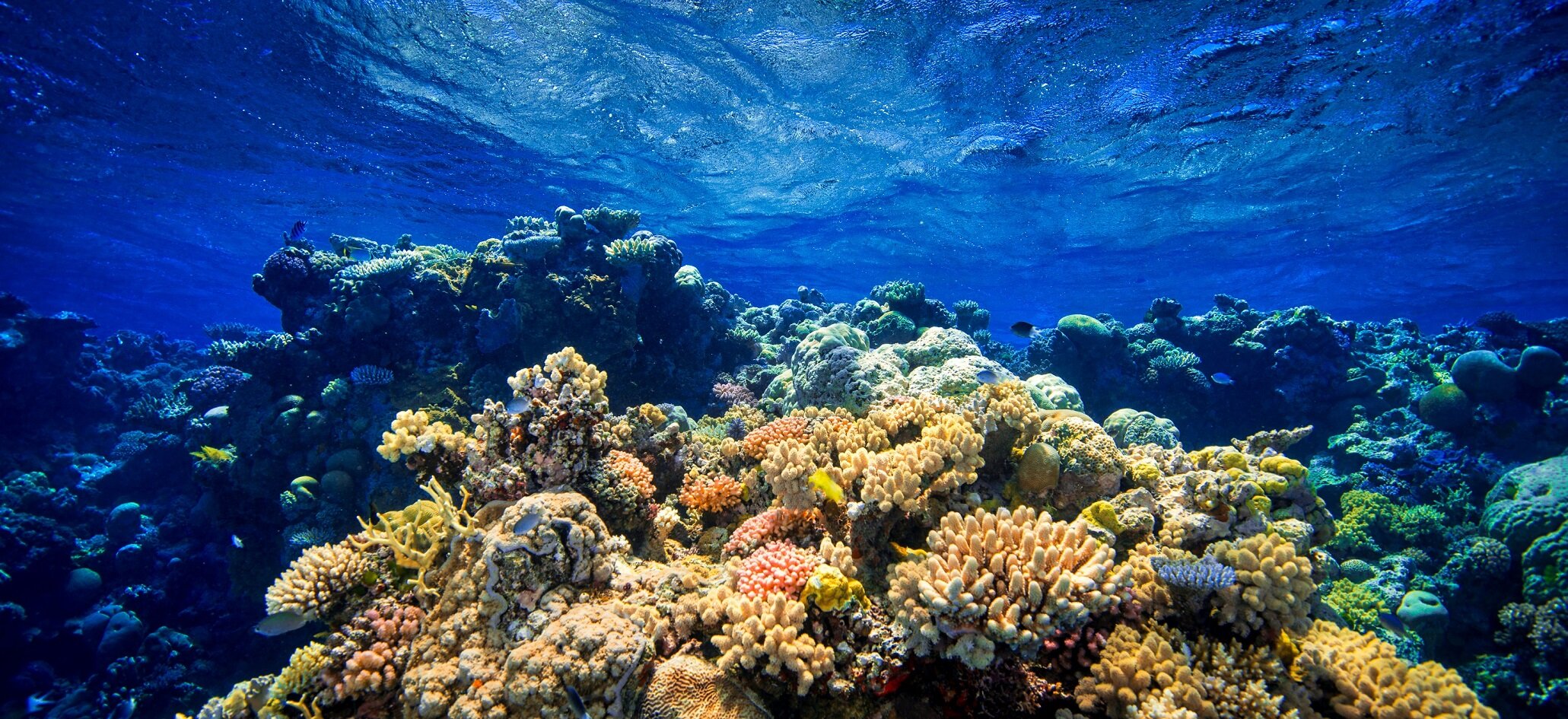Comments and suggestions are welcome! Don't hesitate and leave them on our comment section down below the article
In recent years, UV filters components derived from sunscreen have been detected more frequently in coastal waters. These UV filters seem to weaken coral, causing the warmed seawater to damage the coral further.
Image Credit: Imagine Earth Photography via Shutterstock - HDR tune by Universal-Sci
In recent years, UV filters components derived from sunscreen have been detected more frequently in coastal waters. These UV filters seem to weaken coral, causing the warmed seawater to damage the coral further.
At their laboratory, scientists from Wageningen University & Research increased water temperatures for types of stony coral from 26 degrees Celsius to 33 degrees Celsius to mimic the effect of climate change. In addition, they added an artificial UV filter known as oxybenzone, an organic compound used in sunscreens, to observe its impact.
Prolonged stress
After that, the coral was examined for more than six weeks. According to Diane Slijkerman, one of the researchers at Wageningen, this type of study is unique as these similar stress experiments are usually short-term focused. However, in this research, chronic exposure to a low concentration of a harmful substance has allowed the researchers to simulate real-life conditions much closer.
It turns out that elevated temperature has the most significant impact on the coral's health, but the results also suggest that sunscreen significantly worsens the damage. Slijkerman stated on the Wageningen website that the warm seawater is the biggest culprit. Still, it seems that some coral species get an extra blow due to the exposure to oxybenzone.
Image Credit: Adam Ke via Shutterstock - HDR tune by Universal-Sci
Coral reefs under pressure
Worldwide coral reefs are under pressure due to a wide variety of factors, including diseases, rising seawater temperatures, a deterioration of the water quality, and acidification. It appears that sunscreen can be added to this list as high amounts of artificial UV filters show up in seawater in coastal regions due to the many tourists that swim there while wearing sunscreen.
The Wageningen researchers emphasize the importance of local measures. Local authorities have little to no influence on the global effects of climate change, but they can influence local control over water quality. This is not only the case for the pollution generated by sunburn but also, for example, the discharge of wastewater and coastal erosion. If we wish for our coral reefs to last for future generations to enjoy, we must take action both locally and globally.
If you are interested in the subject and would like some more details, to be sure to check out the study linked below.
Sources and further reading:
Featured Articles:
If you enjoy our selection of content please consider following Universal-Sci on social media




















